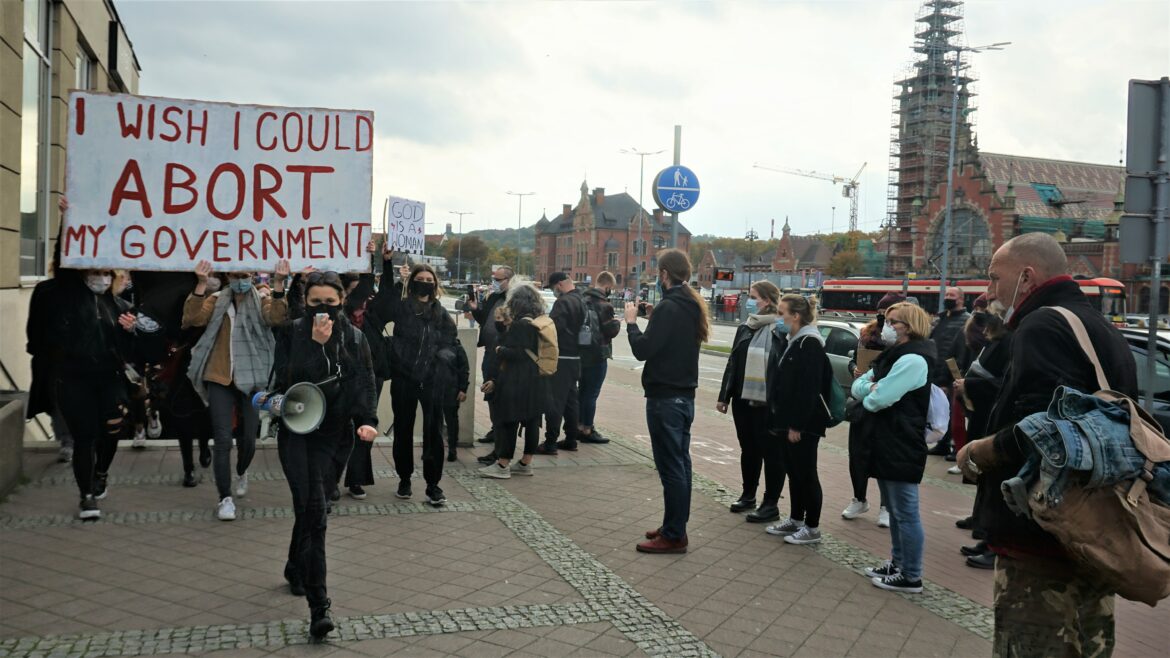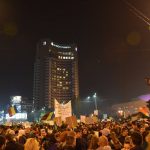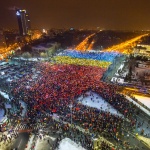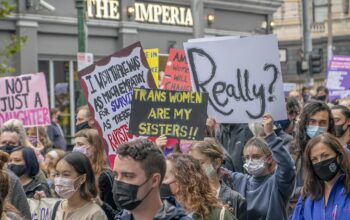The #strajkkobiet phenomenon in Poland is made up of two sides. The first can be grossly defined as the hundreds of thousands of women protesting and demanding unencumbered access to legal abortion, and the Government vehemently trying – and ultimately succeeding – to restrict this particular right. How is the phenomenon unfolding?
On October 22, 2020, Poland’s Constitutional Tribunal imposed a near-total ban on abortions. The ruling allows for abortions in cases of sexual assault, incest or when the mother’s life in danger, but bans it in cases of fetal abnormalities, whereas around 96% of abortions in Poland have taken place in cases of fetal abnormalities. The ruling Law and Justice Party (PiS) has been pursuing an agenda of restricting abortions since the beginning of its mandate, and has promoted it as a campaign promise. Since February, the decision has taken effect.
Both sides use human rights rhetoric to justify their positions. Government rhetoric argues that a human life must be protected from the moment of conception until death, citing the right to life as well as the freedom of conscience and religion, as protected by the Polish Constitution. Meanwhile, the protesters speak of women’s sexual and reproductive rights, arguing that the ban will not prevent abortions, but merely force women to seek them illegally. Beyond the approximate 1,000 abortions carried out legally, women’s rights groups estimated that 200,000 polish women still seek abortions either illegally. Those who can afford it will seek an abortion abroad. Those who carry out illegal abortions and those who aid women in seeking out illegal abortions risk a sentence of imprisonment for up to three years. About a dozen convictions of this kind take place annually.
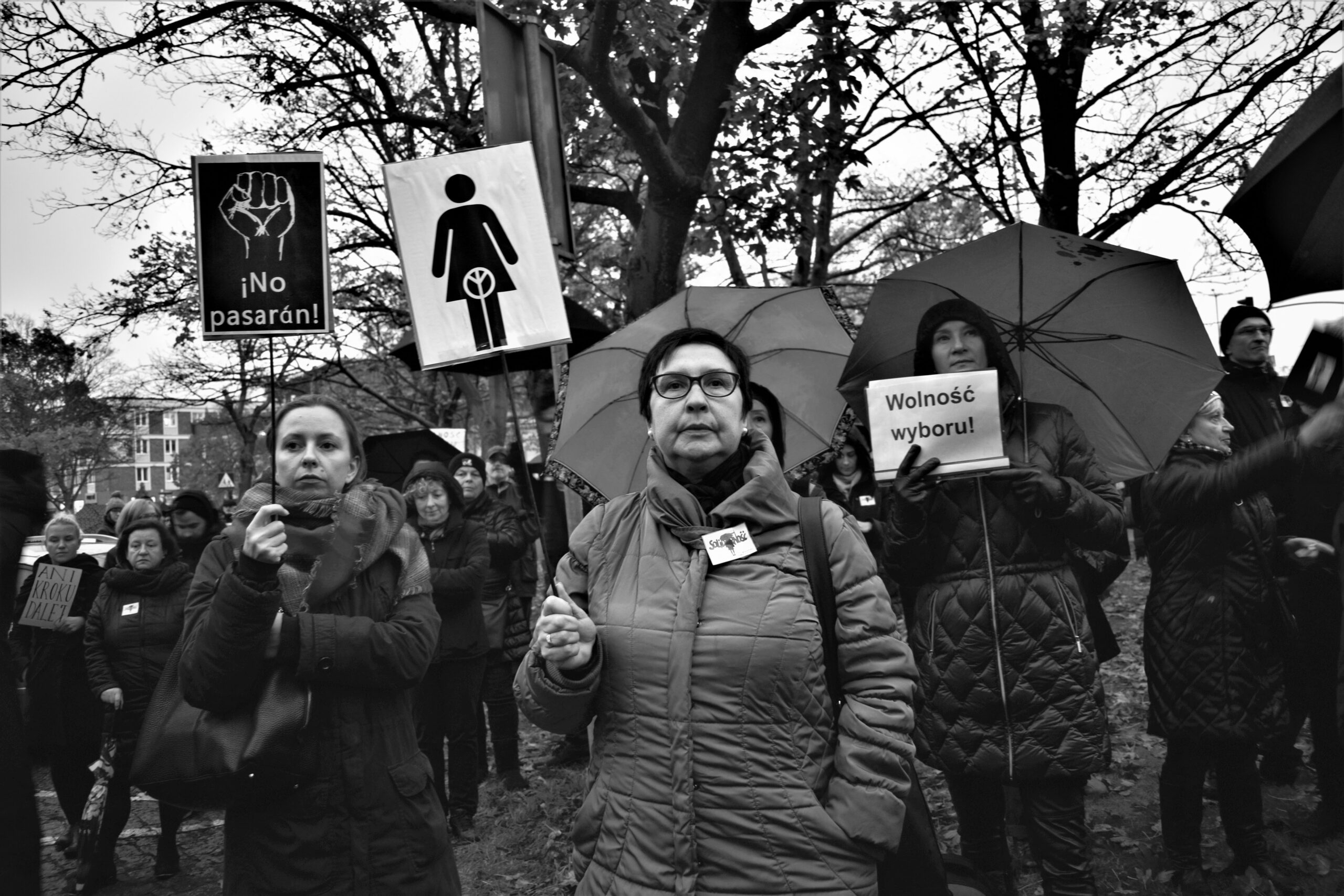
A key player on the Government’s team is the Catholic Church, which supports the ban wholeheartedly. In 2015, 92% of the population identified as Catholic and 61% said that religion has a very high or a high importance in their life. Whereas the state and the church are by law supposed to be independent from each other, a Reuters analysis shows that priests have been known to display election posters on parish property and talk about the elections during mass.
Meanwhile, a key player on the protesters’ side is the European Union, which nonetheless has no competence to impose law on reproductive rights. It does, however, take a stand on the issue. In a 2020 submission by the Council of Europe Commissioner for Human Rights, the Commissioner found that “since 2014 almost 4,000 Polish doctors have signed a “Declaration of Faith of Catholic doctors and medical students regarding human sexuality and fertility”, through which they expressed their commitment to following “divine law” in their professional work and to reject abortion, contraception and in vitro fertilisation.” Whereas a doctor who signs such a declaration must refer the patient to another practitioner, in practice, timely access to an abortion is severely and systematically hindered. According to the same submission, in some areas and in some hospitals, virtually all doctors have signed such a declaration and women are forced to seek an abortion illegally.
The same report found that sexual and reproductive health is further dampened by a 2017 decision that the emergency contraceptive pill would be made available only on prescription, as opposed to over-the-counter. However, prescriptions are delayed by doctors who refuse to sign them based on the same freedom of conscience and religion clause, the long wait or the cost for an appointment, and the fact that minors need a legal guardian to accompany them when making such an appointment.
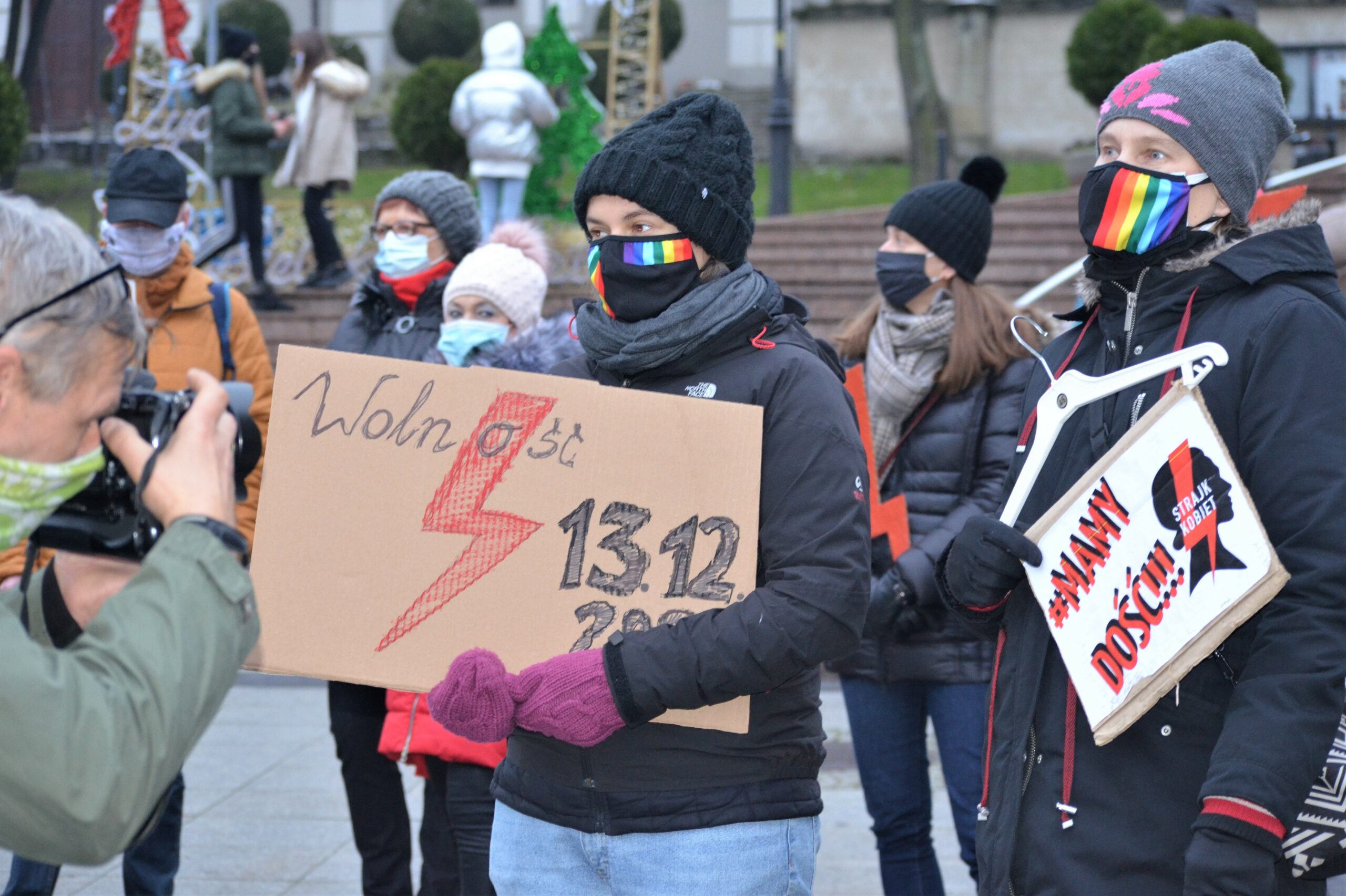
In a press release on November 26, 2020, the European Parliament has spoken out against the ban, citing that women’s rights were being violated and their lives were put at risk. The EP had found that access to prenatal screening, which could find fetal abnormalities and result in a request for an abotion, was being restricted by doctors using the conscience clause. Meanwhile, Poland has announced that it plans to withdraw from the Istanbul Convention, wherein member States of the Council of Europe vow to “protect women against all forms of violence, and prevent, prosecute and eliminate violence against women and domestic violence”, on that grounds that the Convention imposes “a leftist ideology”. It is up to the same Constitutional Tribunal to review the Istanbul Convention and make a final decision.
Meanwhile, the #strajkkobiet phenomenon is not about a protest against one particular ruling by the Constitutional Tribunal. The phenomenon is about a system of oppression that pushed women to break the law in order to have access to the same rights that other European Union countries choose to protect. Women who do not have the means to go abroad for an abortion will end up getting an illegal one. The lucky ones will be under some kind of medical supervision. Those without that option will go for an at-home improvisation that will, in some cases, be fatal. The #strajkkobiet phenomenon is about a system of oppression that left women with no choice but to protest.
Related articles:
Photo credits:
